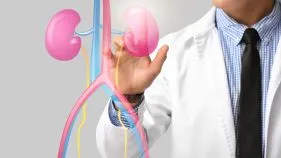Kidney Problems: Signs, Causes, and When to See a Doctor
Kidneys are essential for keeping your body balanced and toxin-free. They filter waste, control fluid levels, regulate blood pressure, and support healthy red blood cell production. But when your kidneys face issues, the effects can ripple across your entire body.
Kidney problems can be subtle at first, but ignoring the early signs may lead to severe complications, including kidney failure. This blog will guide you through the common types of kidney problems, their symptoms, possible causes, and when to seek medical help.
What Are Kidney Problems?
“Kidney problems” is a broad term that includes any condition that impairs the function or structure of the kidneys. These problems may be temporary or chronic, mild or life-threatening, and can affect one or both kidneys.
Common Kidney Problems
1. Chronic Kidney Disease (CKD)
A long-term condition where kidney function gradually declines over time. Often caused by diabetes or high blood pressure.
2. Kidney Stones
Hard mineral deposits that form inside the kidneys and can cause severe pain when passing through the urinary tract.
3. Urinary Tract Infections (UTIs)
Infections that start in the bladder but can travel up to the kidneys, causing inflammation and pain.
4. Acute Kidney Injury (AKI)
A sudden loss of kidney function due to severe infection, dehydration, medication side effects, or trauma.
5. Polycystic Kidney Disease (PKD)
A genetic condition that causes fluid-filled cysts to grow in the kidneys, eventually impairing their function.
Symptoms of Kidney Problems
Kidney issues often don’t show symptoms in the early stages. However, as the condition progresses, you may notice:
-
Swelling in your legs, ankles, feet, or face
-
Changes in urination (frequency, color, or foamy urine)
-
Pain in the back or side
-
Fatigue or weakness
-
Nausea or vomiting
-
Loss of appetite
-
Persistent itching
-
Shortness of breath
-
High blood pressure
-
Metallic taste in the mouth
What Causes Kidney Problems?
Several factors can contribute to kidney problems, including:
-
Diabetes
-
High blood pressure
-
Frequent use of painkillers or certain medications
-
Dehydration
-
Obstructions like kidney stones or enlarged prostate
-
Infections
-
Autoimmune diseases (e.g., lupus)
-
Family history of kidney disease
-
Smoking and poor lifestyle choices
How Are Kidney Problems Diagnosed?
Doctors may use the following to identify kidney problems:
-
Blood tests: To check creatinine and glomerular filtration rate (GFR)
-
Urine tests: To detect protein, blood, or infection
-
Imaging: Ultrasound or CT scan to visualize the kidneys
-
Kidney biopsy: To determine underlying disease
Treatment Options for Kidney Problems
The treatment depends on the type and severity of the issue:
-
Medication to manage blood pressure, blood sugar, and infections
-
Diet and lifestyle changes (low-sodium, low-protein diets)
-
Pain relief for kidney stones
-
Dialysis or kidney transplant for advanced kidney failure
-
Preventive care to avoid further kidney damage
Preventing Kidney Problems
-
Stay well-hydrated
-
Manage chronic conditions like diabetes and hypertension
-
Avoid overusing over-the-counter painkillers
-
Eat a kidney-friendly diet
-
Exercise regularly
-
Avoid smoking and limit alcohol
-
Get regular health check-ups
Get Expert Help for Kidney Problems at Prabhakar Bhurke Clinic
If you’re experiencing symptoms of kidney problems—or have conditions that put your kidneys at risk—consult a kidney specialist without delay.
At Prabhakar Bhurke Nephrology, Urology, and Gynaecology Fertility Clinic, Dr. Sandip Prabhakar Bhurke, a leading Kidney (Renal) Nephrologist Specialist, offers expert evaluation, diagnosis, and treatment for a full range of kidney issues.
Our clinics in Lokhandwala (Andheri West) and Borivali West are equipped with advanced diagnostics and offer in-clinic consultations, home visits, and teleconsultations.
Protect your kidneys before it’s too late—schedule a consultation today.




